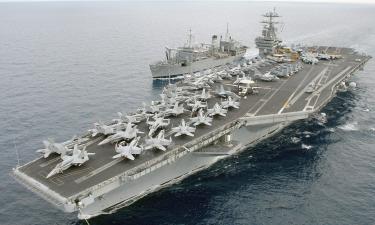Offshore Havens For Cutting Tax Bills
When it comes to energy companies' use of offshore tax havens, Enron Corp . ( ENRNQ), which established hundreds of units in the Cayman Islands and other exotic locales to cut its tax bill, was far from alone, Monday's Wall Street Journal reported.
Many large energy-related companies -- including oil-field-services firm Halliburton Co . , the company Vice President Dick Cheney once ran -- manage large numbers of subsidiaries in far-flung places with lots of sand and sunshine but precious little oil or gas.
Halliburton , according to its latest annual report to shareholders filed with the Securities and Exchange Commission, has units in St. Lucia, Liechtenstein , Barbados , the Cayman Islands , Cyprus , the Netherlands Antilles and the British Virgin Islands. All are well-known tax havens with few natural resources. That is posing a political problem for the White House, which is seeking to avoid damage from the swirling controversy over companies' tax-avoidance strategies.
Mr. Cheney's office referred inquiries on the matter to Halliburton , whose chief executive said the firm fully pays its taxes. "Ultimately, all our profits are taxable in the U.S.," said Dave Lesar, the Dallas company's chairman and CEO. But he acknowledged the company takes advantage of rules allowing the deferral of foreign income, a strategy that allows firms to use pretax money for longer periods, or to report the income only when they have deductions to offset it.
In the oil patch, however, Halliburton is just one of the crowd. Its rival Baker Hughes Inc . also uses the Cayman Islands and other places for tax purposes; several other competitors are even more aggressive. Weatherford International Ltd . , Veritas DGC Inc . , Noble Corp . and Nabors Industries Ltd . , all oil-services firms with Texas roots, are packing for Bermuda or the Caymans. Others have already moved: Transocean Sedco Forex Inc. ( RIG) and GlobalSantaFe Corp . , the world's two biggest offshore-oil- drilling firms, already have moved their headquarters to the Caymans, as has Seven Seas Petroleum Inc . . Another firm, Willbros Group , is incorporated in Panama .
Schlumberger Ltd . NV, Halliburton's biggest competitor, was a pioneer on this front. For decades, it has been domiciled in the Netherlands Antilles , allowing it to avoid much corporate income tax for both the U.S . and Europe. Schlumberger has headquarters in both Paris and New York .
In a report issued in 2000 based on companies' SEC filings, the labor-funded Institute on Taxation and Economic Policy found that between 1996 and 1998 the petroleum and pipeline industry had an effective tax rate of 12.3% -- the lowest of all major U.S . economic sectors.
At the root of the current controversy are U.S . corporations' efforts to shelter their income earned elsewhere, and energy companies have had a lot of practice. "Energy companies have more opportunity to do this because much of their business is abroad," said attorney H.of Caplin & Drysdale, a former Treasury Department international-tax expert. He added that the use of such maneuvers isn't shocking. "Companies do set up foreign entities to avoid U.S . taxes," he said. "It may have a bad odor today, but it's been around for a long, long time."
When U.S . companies set up foreign entities, they have the opportunity to minimize taxes by reinvesting that pretax income into foreign operations. But they can only put off paying taxes so long. So-called antideferral rules in the U.S . tax code do require some foreign income -- such as oil royalties, dividends and even some pipeline income -- to be reported immediately.
©
&to=https://www.enron.com/corp' target=_blank>ENRON
&to=https://www.halliburton.com' target=_blank>HALLIBURTON
Subscribe to Pravda.Ru Telegram channel, Facebook, RSS!





